5. The Fountain (2006) – Darren Aronofsky
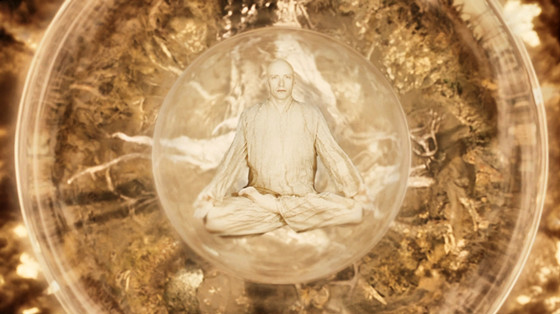
A film in which the director shares his thoughts and meanings of the film, ranging from coming to terms with your death to a simple love story. The film has gained somewhat of a cult following and deservingly so, due to this performances across three distinct narratives, micro-cinematography, and the questions that make us think about the fragility of our lives.
Aronofsky has been more outspoken on the film than other directors who have created thought-provoking films for audiences. Maybe this alone could be a sign, because scientists can relate to the exploration of finding a cure for death, religious figures and historians to finding what occurred during the spreading of religion in Central America, and philosophers to what can happen in the future.
The film can be leveled on several subgenres and analysis that almost anyone can relate to. And more importantly, through Aronofsky’s storytelling of visual motifs and grand gestures, we see new things every time we watch it and it makes us think about all the themes even more.
The film explores many things, but is really grounded as a love story that may make us explore all the questions we have, and what we are constantly thinking about are really just the love between two human beings.
4. Mulholland Drive (2001) – David Lynch
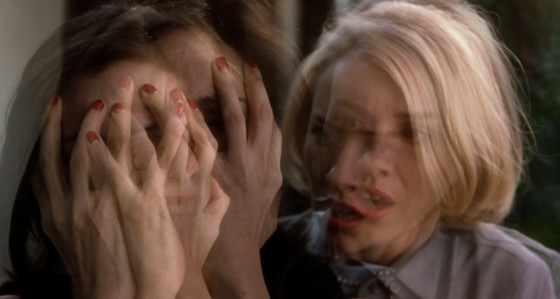
When one enters the world of David Lynch, you must abandon logic, explanation, and reasoning at the door. However, these components never leave us during the film experience, but can alter our emotions toward his films such as this one. The reason why this Lynch film challenges us is because despite all the style and content, it can ring true to our inner conscious and it never truly leaves us.
Yes, there are trash creatures, alternative dreams, spilt narratives, and secondary characters that we still don’t understand, but it’s Lynch’s world that makes us continually question what is happening and “what is this?” By surrendering to the film, you will have dozens of questions about the plot and what occurred, but it’s our interpretations that challenge us to think in new ways.
Yes, we will never be near the creator of the film in terms of skill, but it allows us to develop our own connection that we can’t share with others. It shows how a film can generate such feelings, even if we don’t know what occurred.
You can take this further to reading books about Los Angeles, David Lynch, and every element explored in the film, which is only the starting point of the power of this film.
3. Stalker (1979) – Andrei Tarkovsky
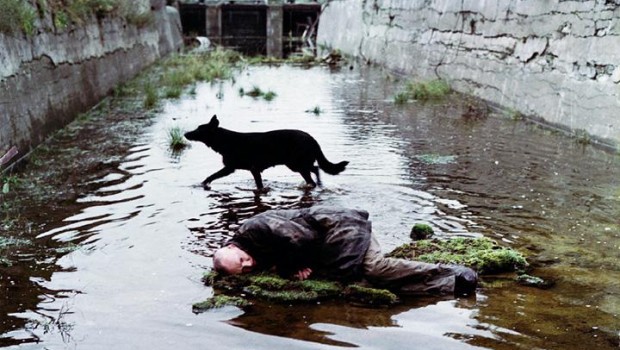
A film that explores our deepest desires hidden in our consciousness and traveling into the heart of darkness to get there, literally and figuratively. Tarkovsky explores these themes with elements from “Solaris” in a film where we feel like the main characters, searching for our reason of existence.
In the film, they are looking for the ‘Zone’ where the room grants their deepest wishes. How can you watch the film and not think about your own deepest wishes in the process? The film not only absorbs us from the opening take, but allows our own consciousness to play a part.
This leads to a truly unique film experience and one that continually asks us questions of not only, “What makes me happy?” but also, “Can I achieve it in this lifetime?” And through Tarkovsky’s methods of a little girl telekinetically moving a glass across the table is where the transcendence occurs, and it’s left to the viewer for interpretation.
The entire film must be felt and out of this we can garner questions that explore the deepest parts of ourselves, continually reflecting on our own way of thinking and being in this modern world.
2. 2001: A Space Odyssey (1968) – Stanley Kubrick
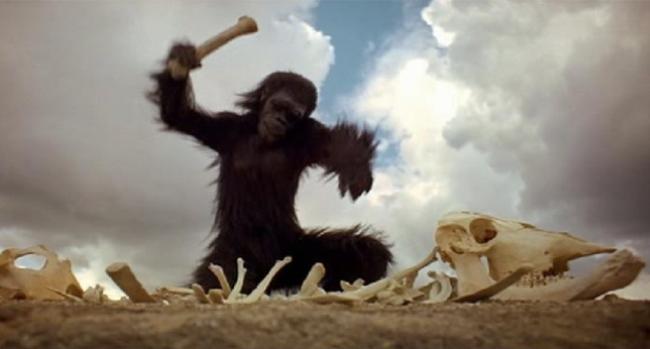
A film that is still talked about as if though it came out yesterday. Yes, the film raises more questions than it provides answers, but it’s the type of questions we ask ourselves. It’s not only like, “What is the Star Child?” but more of “What does the Star Child represent?” or “Is it possible?” This can be applied to the black monolith, the scientific facts, the ape man, and the birth of galaxies in our solar systems and beyond.
Take the end scene of the various stages of David Bowman. Every time a new form, age or entity of Bowman is on screen, Kubrick never cuts back to the original or point-of-view shot. Does this mean we’ve advanced 30 years in the blink of an eye? An endless cycle of life, death, and rebirth? Even in archival footage, Kubrick had aliens observe the cycle of Bowman as their own extra-terrestrial. Almost every frame raises more questions and we ask if any of this can correlate. What is Kubrick trying to say and what can actually occur?
Released in 1968, almost everyone asked themselves is this is what the future would look like, and if our advances could reach that in 33 years. Regardless, we continue to explore and possibly catch up to what was created in cinema in the past.
1. Waking Life (2001) – Richard Linklater
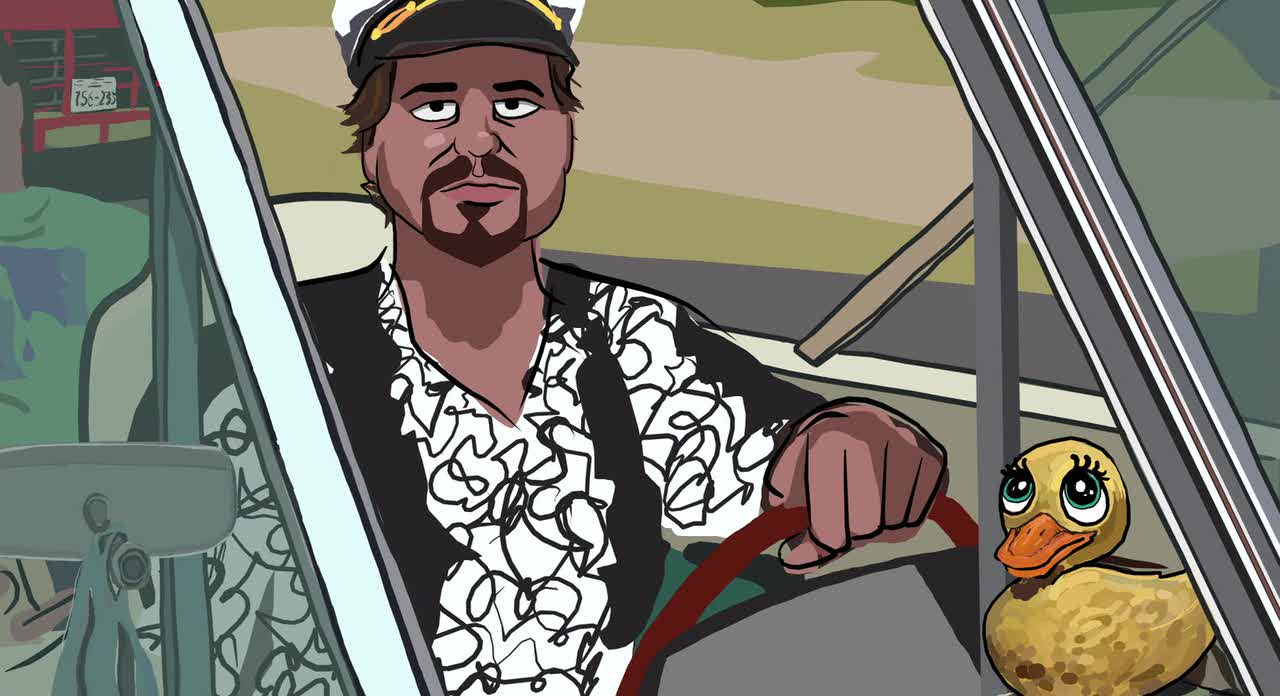
Richard Linklater is no stranger to compelling dialogue, trying, searching, and understanding the little moments in life. In this animated film, anything you can think of regarding dreams, reality, life, death, existentialism, and so forth in discussed.
All the characters come and go as our protagonist does as well in a dreamy state. Take one example of many in the film, when the burning man arrives in a state of constant frenzy when he starts to speak. He states, “Man wants chaos. In fact, he’s got to have it. Depression, strife, riots, murder. All this dread.
We’re irresistibly drawn to that almost orgiastic state created out of death and destruction. It’s in all of us. We revel in it”. This is just a snapshot of the 101 minutes of the rotoscoped film, and if you want statements, questions, or the general concern of a variety of characters, this surreal film is the one for you.
Linklater created a film that feels and looks so otherworldly but is grounded in the worldly themes of our lives, and thus, exploring these ideas will make even the most intelligent human being think more than twice.